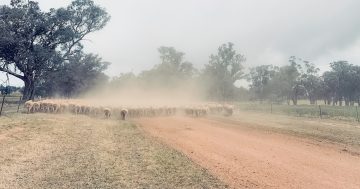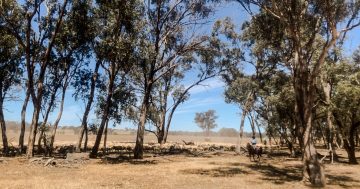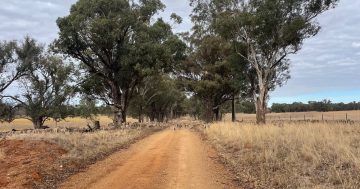
The Regional Investment Corporation prepares farms with low-cost drought loans. Photo: File.
The Federal Government’s Regional Investment Corporation (RIC) is promising to help farmers to improve their drought recovery processes and readiness for future climate events by offering low-cost, long-term loans.
While much of regional New South Wales is drying out in the wake of the devastating floods, climate researchers have this week warned of dry conditions ahead.
The Bureau of Meteorology (BoM) has updated its outlook to suggest that the La Nina conditions that have soaked the country for the past three years are coming to an end.
The BoM says things have changed more quickly than usual and an El Nino event could be on the way.
El Nino conditions prevailed through the record-breaking drought from 2017 to 2020 and culminated in the catastrophic Black Summer bushfires.
RIC CEO John Howard said despite the recent rains, it was important to prepare for dry conditions.
“The deeply challenging reality of drying conditions isn’t something we want to think about, but farmers know early preparation is key to their business viability,” Mr Howard said.
In the years ahead, Australia is expected to experience more heat extremes and fewer cold extremes, which will ultimately lead to decreases in rainfall and longer fire seasons in the coming decades.
Mr Howard said farmers knew first-hand the challenges of extreme weather events and were already looking ahead.
“One customer has used their drought loan to build two new dams, increase the size of an existing dam and increase water capacity by about 70 per cent,” he said.
“Another family farming business has used their drought loan to adapt to shifting market trends and invest in horticultural crops to future-proof.”
NSW Farmers Association policy director Kathy Rankin said the 10-year loans being offered by the RIC were a positive step, but warned that many would need longer-term strategies.
“Accessing long-term finance is a significant issue in growing agriculture’s contribution to the economy, and certainty of access over the longer term is critical,” Ms Rankin said.
“Part of that certainty is maintaining the cost of borrowing as we continue to see increasing interest rates.
“These low-interest loans with a five-year deferral of the principal repayment are beneficial after significant shocks to the business – but still require the business to have the capacity to service the loan.”
She said the variability of farming meant that longer-term planning was essential to prepare for and manage an increasingly volatile climate.
“Farm businesses potentially face a multitude of risks that need to be prepared for and managed, including floods as we have seen recently, drought, and other natural disasters,” Ms Rankin said.
The NSW Farmers Association encouraged all farm businesses to have a detailed risk management plan.














